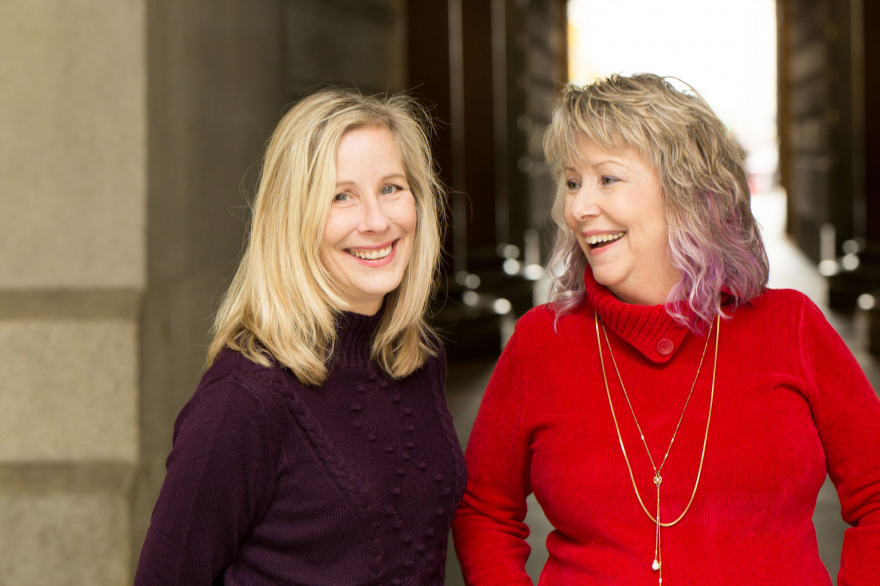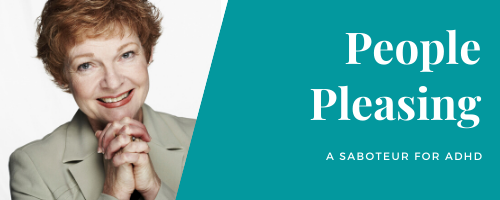
ON A PERSONAL NOTE
These are some critical days to remember the importance of expressing our compassion and empathy towards others, for very good reasons. In the spirit of "We're all in this together", many of us have gone out of our way to support and make others happy. So, please keep in mind with this month's feature article about the people-pleasing syndrome, our gestures of kindness and support are very much warranted. In fact, a beautiful thing!
On the flip side, when people-pleasing gets out of control or becomes the norm, it's no longer such a healthy or beautiful thing. In fact, in excess, people-pleasing is more than likely to sabotage our day and compete with the precious time we have to be productive and attend to our own priorities, especially the ones we are not really looking forward to doing. Not to mention our own self-care.

DO YOU HAVE THE PEOPLE-PLEASING TENDENCIES?
Pleasing other people—who could find fault with that? Isn’t it a good thing to consider the needs of others, to be gracious, to be nice? By all means! But for many, the desire to please becomes an addictive need to please others, even at the expense of their own health and happiness. It takes a toll on our relationships, our quality of life, and often whether or not we can accomplish our own goals for a given day.
People-pleasing tendencies can be such a strong force in the life of someone with ADHD, that it drowns out the inner voice that may be trying to protect us from overdoing it. I can think of many scenarios where the one with ADHD has set aside their own responsibility to help another because it felt good. Or, they have taken on too much just to make everybody happy. What doesn't feel so good afterward is the overwhelm and not getting to their own responsibilities and the repercussions, angst, and depressed mood that may follow.
Do you have people-pleasing tendencies?
Take this quiz to see whether you can benefit from learning to say no to others more often—and yes to yourself.
[ ] I put others’ needs before my own, even when the cost to me and my own happiness is great.
[ ] I find it difficult to say no if someone needs my help. In fact, I often find it difficult to say no. And when I do, I feel guilty.
[ ] I often try to be who others want me to be or expect of me to feel like I fit in.
[ ] I keep my own needs and problems to myself; I don’t want to burden others with them.
[ ] It’s my job to make sure everyone else is happy.
[ ] I always have a smile on my face and an upbeat attitude, even if I feel sad or angry or hurt.
[ ] I go out of my way to avoid conflict and confrontation; it’s better just to keep the peace.
[ ] I am often on the go, rushing to get things done. When I take a moment for myself, I feel selfish, indulgent, and guilty.
[ ] I should always be nice and never hurt others’ feelings.
[ ] I’ll do whatever it takes to get someone to stop being mad at me.
[ ] I hold back from saying what I really think or from asking for what I want if I think someone will be upset with me for it.
[ ] I want everyone to like me…all the time.
[ ] I feel like a failure if I’ve displeased anyone.
[ ] If I don’t make others happy, I worry that I’ll be alone and unloved forever.
[ ] I will change my behavior, at my own expense, to make others happy.
[ ] I spend a lot of time doing things for others, but almost never ask anyone to do things for me.
[ ] If I ask people for help and they agree, I’m sure they must be giving out of obligation; if they really wanted to help, they would have offered without my asking.
[ ] It’s difficult for me to express my feelings when they are different from someone I'm close to.
If you answered True more often than False, you may need support in saying Yes to yourself more often and to curb the urges to bail on your own priorities and needs to help out others! The motivations for being a people pleaser are varied and usually quite unconscious. Harriet B. Braiker, Ph.D., in The Disease to Please. writes “As a people-pleaser, you feel controlled by your need to please others and addicted to their approval, At the same time, you feel out of control over the pressures and demands on your life that these needs have created.” This may or may not be the case for us as people-pleasers. It might be we lack the structure and strategies to help us curb our impulses and manage our distractions in ways that keep us focused on our own priorities first.
So what can you do? Now more than ever, it's important to start your day clear about your own priorities. Take the extra steps to determine what they are and schedule their completion during the most productive time of your day. Anticipate the needs of those you support and care about.
One idea is to block out intentional times to help them that won't compete with your own priorities and needs. Another tip is to pause before you say Yes! Be ready with a response that gives you grace and space to consider your needs first. A few phrases, "I would love to help you with that, but first I must complete this report." Or, "I need the next two hours to focus on my own work today, and then I will circle back and spend some time helping you." "Let me figure out how I might be able to work that into my schedule today."
Author’s content used under license, © 2008 Claire Communications
COOL RESOURCES
Resourcefulness is also a good thing. Several of our ADHD Coach colleagues have teamed up to share complementary resources that you might find helpful during these times. Watch for our Weekly Updates email for the next ten Thursdays with freebies to help support adults, parents, college students, teens and tweens with their ADHD.
 Do you have someone in your household who is one or two years out from heading off to college or living on their own? Do you have someone in your household who is one or two years out from heading off to college or living on their own?
Get this assessment to help them evaluate, collaborate and prepare for next steps. Our assessment includes 10 questions to help them reflect on where they are now with the skills and habits that will fuel their success.
We will follow up with a few helpful emails that provide some strategies and tips on how to collaborate and prepare for a smooth transition.
We get how nerve-wracking it can be for parents when their teen or young adult takes this next big leap in their life. Why not take the steps now, to ease the transition and put more confidence and empowerment on their side.
Click here to grab your copy.
UPCOMING EVENTS
We have several classes and workshops coming up in May and June. Head on over to our website to explore our coaching and support options.
- Marriage Uncomplicated Workshop and Research Study starts May 26th! Learn more.
- Decluttered at Last Book Club and Coaching Circle starts June 17th! Learn more.
-
Click here to check out our ADHD Classes featured in May 2020
- Got ADHD, Now What? Your Guide to Moving Forward, May 16th
- Building on Executive Function Skill Capabilities with ADHD, May 18th
- Strengths Spotting with ADHD, May 30th
CONNECT WITH US
Robin@ADHDCoach.life
Kat@ADHDCoach.life
Kristine@ADHDCoach.life
Riley@ADHDCoach.life
|